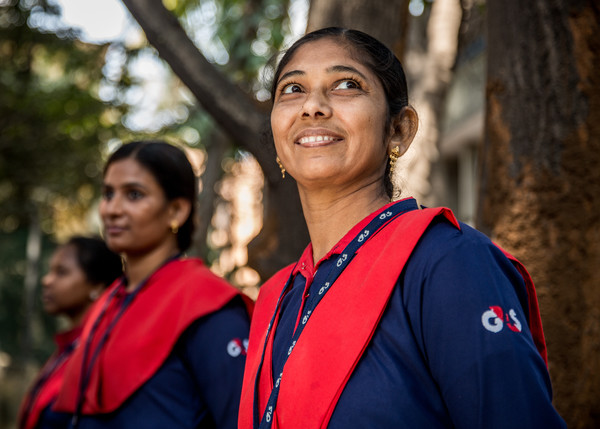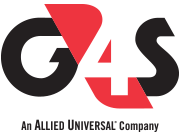Human rights

Our ethos is based upon fairness and respect for human rights. We are committed to the development of an ethical and sustainable business model and utilize our influence and geographical reach to help raise industry standards, provide decent employment opportunities and create secure and stable communities around the world. There are two elements to our human rights approach:
In many ways, our business contributes positively to the realization of human rights through the specialized services we offer, protecting people and enabling them to enjoy their rights. We have a duty to ensure that we are not at risk of violating human rights through the services we provide, the customers we work with, the suppliers we use, or through the unfair or inappropriate treatment of our own employees and others in our care.
Allied Universal is committed to fulfilling its obligations on human rights across all its companies around the world by applying the United Nations Guiding Principles on Business and Human rights (2011).
Key procedures and initiatives:
Led by our global human rights policy, human rights matters are embedded in key business policies and processes, such as our ethics code, human trafficking policy, labour management standards and G4S supplier code of conduct.
- We operate human rights controls, due-diligence frameworks and control self-assessments for higher risk businesses which are integrated into risk and compliance systems.
- Following the launch of our global human rights policy, the supporting guidance for managers and our due-diligence framework have been refreshed and will be re-launched in 2024.
- We undertake a regular human rights heat-map review that identifies the countries in which human rights risks are high. This process informs several business processes, such as our audit program and risk assessment.
- Thematic audits of specific human rights matters are conducted by the internal audit function. Three were undertaken in 2023 covering migrant worker employment and welfare. Relevant topics such as workplace safety and labour management are incorporated into the wider audit program. A series of human rights control audits in higher risk markets will be undertaken as part of the audit program in 2024.
- We undertake human rights due-diligence reviews of major international business opportunities as part of the executive review process.
- Human rights awareness programs are available for senior management and key functional officers, such as human resources and procurement staff. More widely, human rights matters are embedded into relevant operational procedures and training programs, such as those for use of force and employee safety.
- We encourage employees and other stakeholders to use our whistleblowing services if they have any concerns about human rights compliance within our organization.
We encourage our employees to use our Speak Out services should they have any concerns about human rights violations either in the business, our supply chain, or customer sites.
Download our Human Rights Policy (PDF 220.8 KB)
Respecting human rights in the supply chain
In our international business, G4S has partnered with leading sustainability analytics providers, EcoVadis and Integrity Next, to ensure that our suppliers meet the ethical standards set out in G4S’s Supplier Code of Conduct, most recently refreshed early in 2023.
The EcoVadis program has been applied to suppliers in high-risk categories and requires in-scope suppliers to complete an assessment tailored to their industry, size and location. The assessment covers 21 criteria including labour and human rights, ethics, the environment and sustainable procurement. The supplier’s responses are
analyzed by EcoVadis, which provides the supplier and G4S with a detailed report setting out the supplier’s sustainability performance. Where performance does not meet the required levels, a corrective action plan must be submitted to G4S to address issues raised.
The program covers 21 key markets, representing almost 75% of international procurement spend. Within these markets, around 7.5% of suppliers (c.600) have been categorized as potentially high-risk, including manufacturers of electronics and uniforms and providers of cleaning services and temporary labour. Approximately 400 EcoVadis assessments have been completed, representing over 65% of in-scope suppliers.
As we extend into less developed markets, it is encouraging that more than half continue to achieve a satisfactory rating. We are working with all organizations that have not achieved a satisfactory rating or that have declined to take part in the program to address shortcomings and encourage participation. A number of organizations have failed to fully engage and have been excluded from our supplier database as a result.
Along with our EcoVadis partnership, we utilize the third-party system Integrity Next in our supply chain management for the UK region. Integrity Next is an online supplier monitoring platform that assesses a broad range of ethical and sustainability matters, providing a real-time overview of the suppliers’ sustainability performance.
Additional assessments have been conducted by more than 3,000 suppliers across Europe. The system has been applied in six countries, representing around 45% of international procurement spend outside of North America. We continue to expand the program globally.
Download the G4S Supplier Code of Conduct (PDF 4521.9 KB)
Protecting the Human Rights of migrant workers (Middle East)
Allied Universal is a leading global employer and committed to the highest standards of employment. This includes ensuring that migrant workers are treated fairly and with dignity and respect.
Our policies and procedures reinforce the expected behaviours of all stakeholders regarding migrant workers. These include the Ethics Code, G4S Migrant Worker Policy, and Speak Out ethics hotline. Benchmarked against external organizations, where appropriate, these policies and procedures add rigor to our internal audits and have provided further opportunities to establish improved standards, assess compliance and drive change.
Our Migrant Worker Policy framework is based upon good practice principles and applies additional measures covering the use of recruitment agencies, accommodation standards and clear employment terms and conditions to help protect employees working away from their home country and the legal protections provided by that country.
We are committed to ensuring the human rights of migrant workers are respected, in the same manner as all employees. Employment must be freely chosen with no use of force, compulsory, bonded, indentured or child labour. We aim to offer decent work under terms that protect the health and safety of employees and ensure that they are treated fairly and with dignity.
We continue to apply the Employer Pay Principle, as set out in the Principles of the Leadership Group for Responsible Recruitment (LGRR) within our directly managed businesses where migrant workers are employed.
We encourage and support the external management of G4S Qatar* to address local challenges and complete implementation of the Employer Pays Principle ahead of the LGRR objective date of 2026. Our migrant worker coordinator (MWC) team, includes welfare officers, and other related roles and supports migrant worker employees in-country.
During 2023, we recommenced face-to-face interviews between migrant worker employees and our MWC. The interviews include checks to verify compliance with our Migrant Worker Policy and to confirm that the employee’s experience during their recruitment and employment is consistent with our standards. The checks cover a range of issues, including:
- The use of recruitment agencies and any associated costs being borne by employees in the recruitment process.
- Consistency of conditions set out in initial offers with actual terms on arrival in the destination country.
- Freedom of movement and any issues that may restrict this, such as the withholding of passports or application of unreasonable notice periods.
For further information please see our Human Trafficking and Modern Slavery Statements.
Our approach to human rights
Human rights

